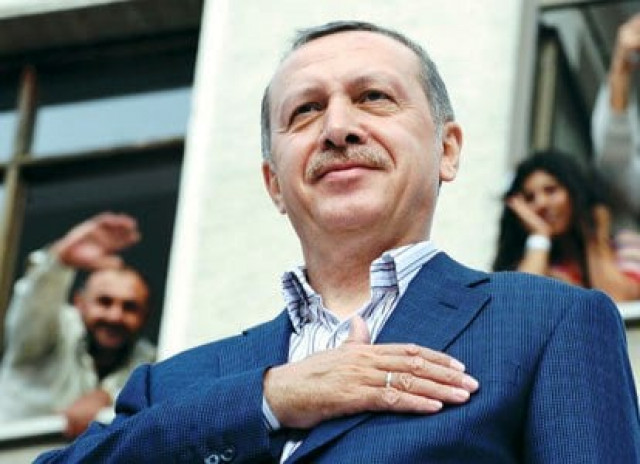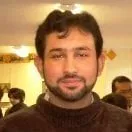Half a century ago, Turkey’s democratically-elected Prime Minister Adnan Menderes and members of his cabinet were arrested by the military. Menderes was put on trial before a military court on charges of treason and subsequently hanged. Two decades later, Turkey once again witnessed a bloody period of political and social crisis, which had yet again been instigated by a military coup. This time around, the self-proclaimed guardian of self-styled secularism, the Turkish military, changed the constitution giving the generals a free hand in thwarting democracy at their whims.
Turkish politicians say enough is enough
However, the progressive Justice and Development Party (AKP) vowed to change the status-quo when it was first elected in 2002. After introducing a number of reforms which galvanised Turkey’s case for entry into EU, AKP sent shivers down the military’s spine when it recently held a referendum on the amendment of the much-despised 1982 constitution.
In addition to ensuring a wide range of civil liberties, the change in the constitution paves the way for the trial of army generals responsible for the 1980 coup, consequently sending a warning to those who may engage in future attempted coups. The AKP learnt the lessons from Turkey’s four military coups, but will politicians in Pakistan ponder over the lessons our history has to offer us?
If Turkey can do it so can we
With military intervention being a frequent occurrence in Pakistan, the similarities which both the countries share are striking. Turkey has had more than its fair share of corrupt politicians (which resulted in the defeat of the militant secularist MHP and CHP in the 2002 election), extra- judicial killings, economic woes and terrorist activities carried out by separatist Kurdish rebels. But rather than minting money at the expense of the welfare of the poor or inviting ‘patriotic’ generals to save the country, the AKP aggressively pursued a selfless agenda of freeing the masses from the shackles of poverty, ethnic tension and illiteracy. The party’s support originates from the rising middle class who have benefited from the rapid growth in the Turkish economy.
Is Pakistan on the right track?
While Turkey makes progress in forging a stable democracy, analysts in Pakistan are trying to outsmart each other in guessing the correct date of a military overthrow of the incompetent government of Zardari. In this political game of cat and mouse (the government being the latter), it is the people of Pakistan who can overcome the original ‘sin’ in the civil-military relationship. The Turkish public voted for a new political party, which did not have a grandeur history like the CHP (which was founded by Ataturk himself) or famed politicians boasted by MHP. Its simple yet energetic campaigners promised hope which seasoned politicians had made a forgotten dream. A quick review of AKP's eight years suggests that the people's mandate has been successful.
The politics of faith
The dynamics of Turkish politics imparts another lesson for the extreme left and right camps of Pakistan. AKP has been influenced by the Turkish Islamic theologian Fetullah Gulen whose teachings about 'kidmet' (altruistic service to the common good) have attracted a large number of supporters in Turkey. Leaders of the party have walked the talk and although AKP can be seen as faith-based, it is not faith-limited, as shown by its pluralistic stance. For the extreme secularists in Pakistan, AKP demonstrates that its religious prime minister can be both a champion of the rights of women who want to wear the hijab in state universities and a defender of Armenian Christians who were previously persecuted by nationalist parties. Even for the parochial religious parties, AKP gives a reformist and progressive model of governance (rather than the pseudo-autocratic regimes of Saudi Arabia and Iran), which says no to militant secularism and yes to religious tolerance and ethnic harmony.
Turkey's path to stability has been a bumpy ride, with the military trying its best to turn back the clock on democracy. Leaked military documents detailed a covert operation to undermine the AK Party in 2003 which included plans to bomb synagogues in Istanbul to provoke social unrest and the deliberate crashing of a Turkish fighter jet to escalate tensions with Greece. In a historic decision, the AKP-led government launched investigations into the attempted military coup resulting in the detention of military officers and militarist civilians determined to preserve Turkey's old guard.
General (retired) Musharraf is planning a return to Pakistan to campaign for his newly formed political party. Will there be an 'AKP' in Pakistan bold enough to lay charges on the former dictator's many crimes and set a precedent for any general who wishes to launch a military coup in the future?
Turkey learnt from its history; so far the only thing we have learnt from ours is that we have learnt nothing.
How Turkey tamed its generals: lessons for Pakistan
Will Pakistan, like Turkey, be bold enough to lay charges on a former dictator and set a precedent for any general who wishes to launch a military coup?



COMMENTS
Comments are moderated and generally will be posted if they are on-topic and not abusive.
For more information, please see our Comments FAQ